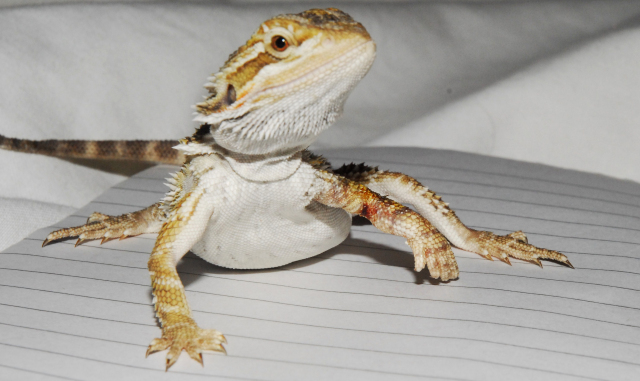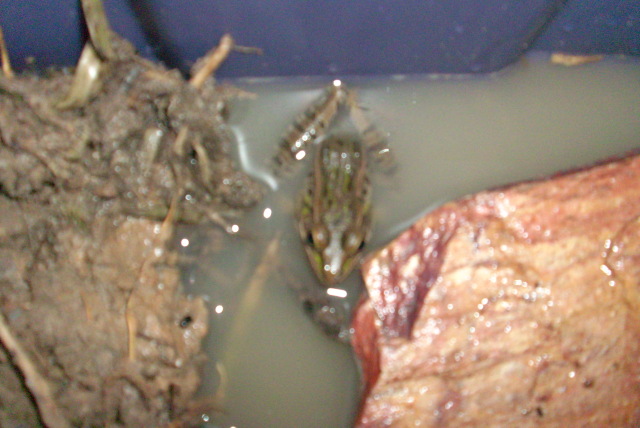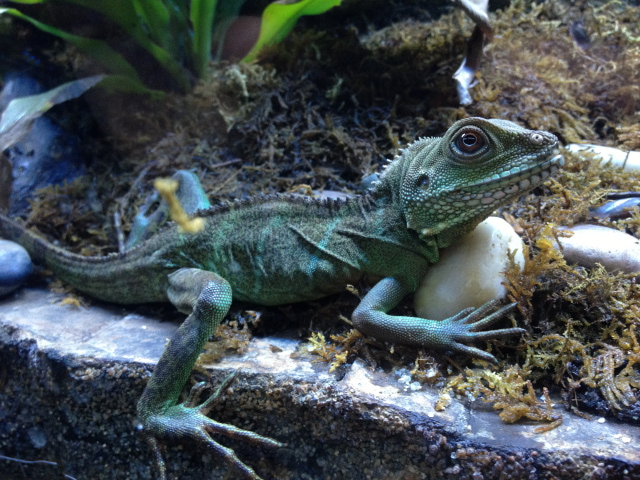QuestionIn 30yrs living on my 10 acres of nature-heaven I've never had this happen. An ornate box turtle has been sitting in the same spot in my garage/shed for 2 days now, barely moving. If he's hibernating, it's just not a good spot...he's sitting on a concrete slab near the open edge, & will be exposed to our Kansas extreme weather. We're still in the 60-70's during the day, 40-50's at night. But that will soon drastically change. Should I move him? All hibernation info I've websearched deals with pet turtles not the free ranging ones. I try not to interfere with nature. He has no protection whatsoever where he is right now. Thank you.
AnswerI am the co-founder of Wichita Falls Reptile Rescue in Tx.
The first thing we need to do is ascertain whether it is really hibernating, or whether it is injured or sick. Normally they will find a burrow, some foliage, or a garden or other soft soil to burrow into. It may be hurt, or sick, or it may have been caught off guard by this cold front.
If so, then it may not be ready to hibernate yet and is looking for some place warm to shelter til it passes. What you need to do is get in touch with me through my website @ http://freewebs.com/wichitafallsreptilerescue
Warm to turtle up by putting it to bask for a little while in the grass during the day, or by putting it in a box, and a heat pad, set to low, underneath one half of the box ( outside the box ). Keep watch on it. Don't get it any hotter than the low 90s. Once it warms inspect the turtle for obvious injuries to the limbs, head, shell, eyes, etc. Check for bright alert eyes. It should react when stimulated, even if attempting to hibernate. When warmed it should wake and react. If it does not open it's eyes, or they look sunken, or the turtle feels very light for it's size, or feels "hollow", then it may be emaciated/dehydrated.
Take numerous pictures if you can, measurements of the turtle, and a weight. Have this ready when you contact me through the website. I will email you back with an address to send pictures for me to inspect. This turtle needs to be in good hydration state, have adequate fat reserves, and be free from any compromising illness, in order to survive hibernation. If it is not in good shape, it will have to be taken to a vet or rehabilitator for the winter, and released next spring. They have to have the strength to burrow deep enough to get under the frost layer or they will die. If it is marginallly able to hibernate on it's own, I can also tell you how to build a hibernarium to protect it and help it out for the winter if you wish.
I look forward to hearing from you.

 Baby beardy has broken arm
Questionshe still climbs but t
QUESTION: i hatch
Baby beardy has broken arm
Questionshe still climbs but t
QUESTION: i hatch
 Bearded Dragon tympanic membrane (ear drum)
Question
Bearded Dragon
I noticed tonight that my drago
Bearded Dragon tympanic membrane (ear drum)
Question
Bearded Dragon
I noticed tonight that my drago
 identification of frog & habitat
Questionfrog
QUESTION: We found an injured frog
identification of frog & habitat
Questionfrog
QUESTION: We found an injured frog
 Chinese water dragon not eating
Question
1/7/13 10/31/12
I have a chinese
Chinese water dragon not eating
Question
1/7/13 10/31/12
I have a chinese
 leopard gecko lump
Questionclose up
QUESTION: My daughters albino l
leopard gecko lump
Questionclose up
QUESTION: My daughters albino l